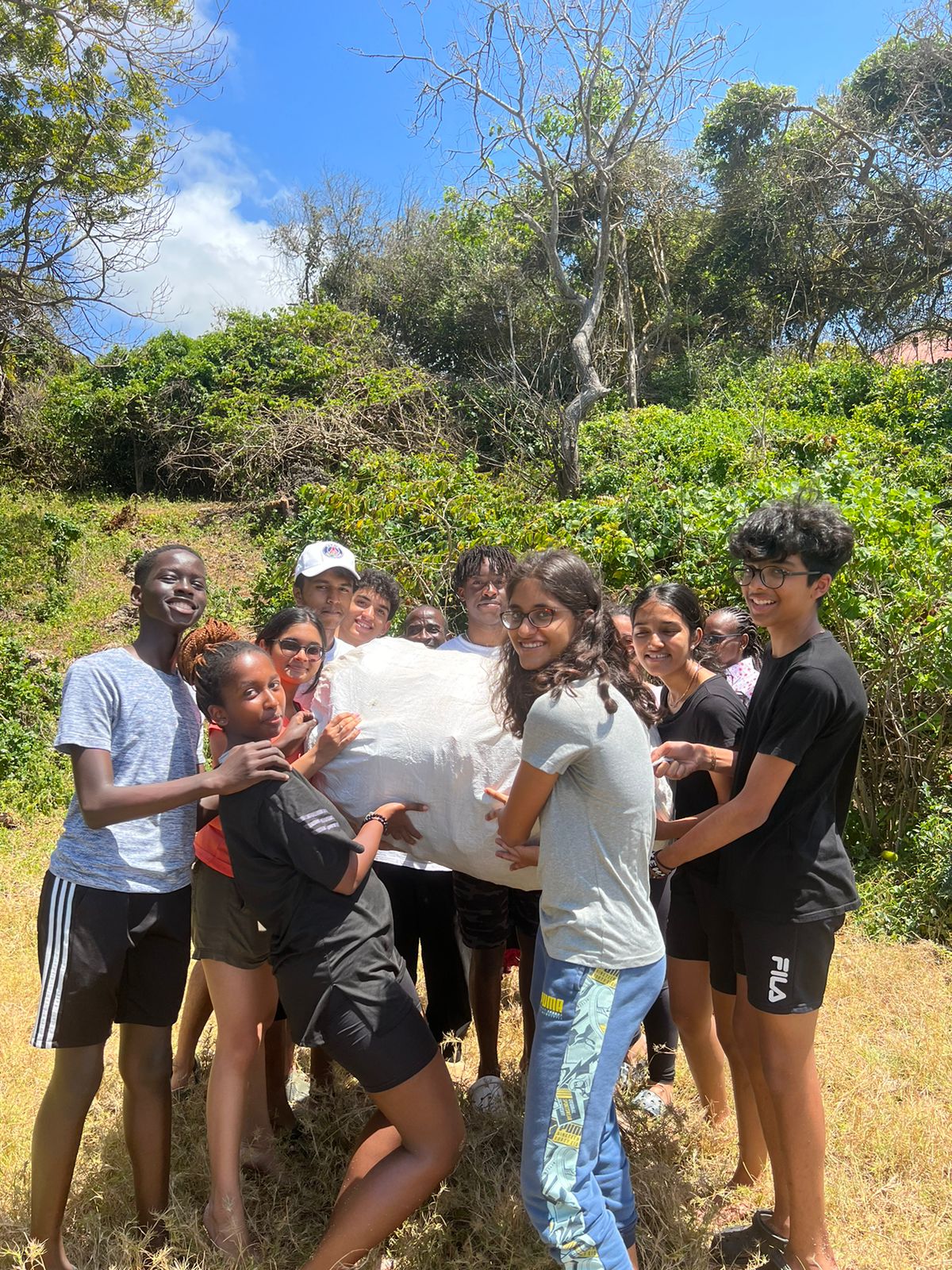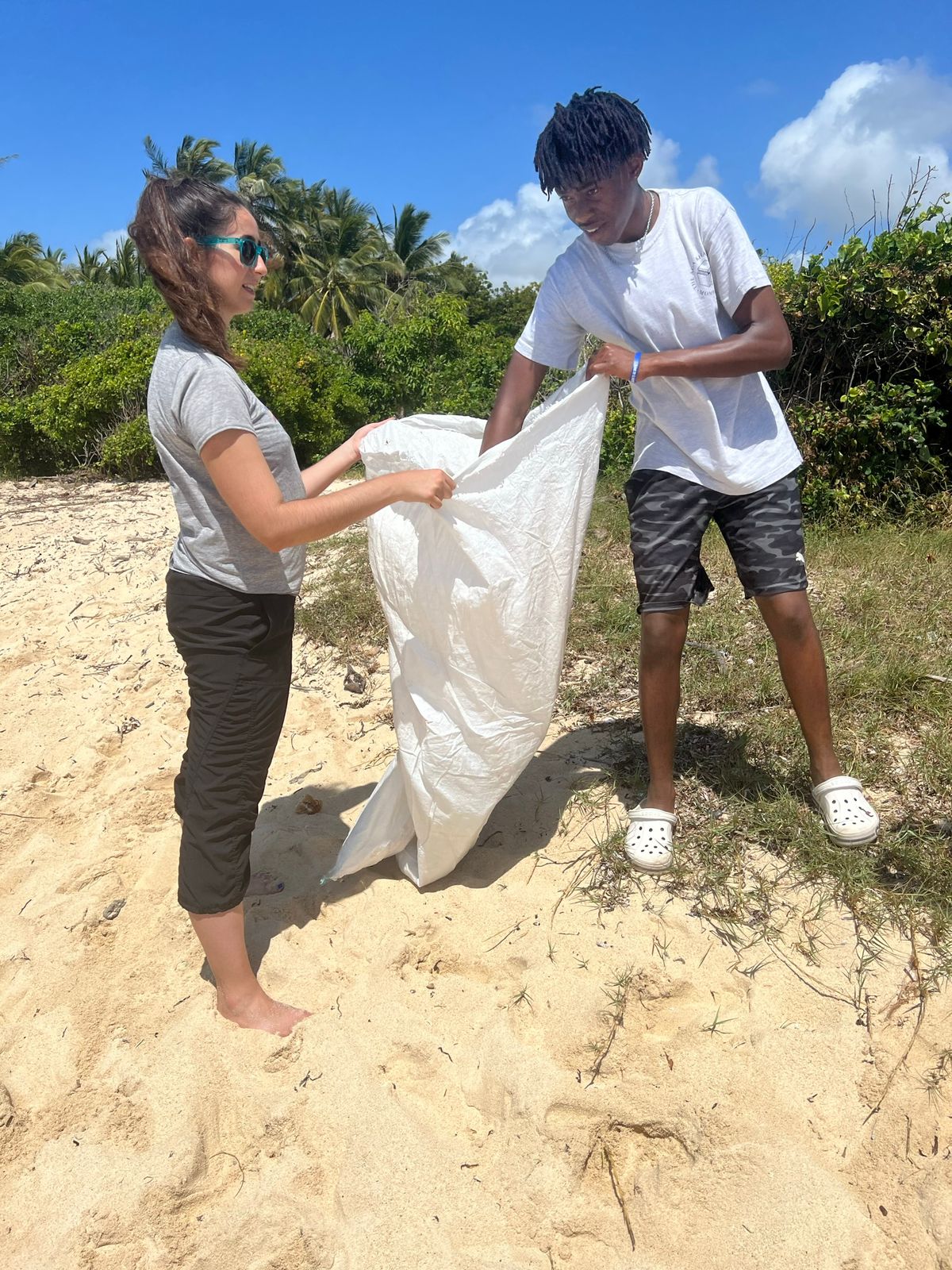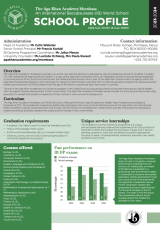International Beach Clean-Up Day by Ocean Eyes
Twenty students from the Aga Khan Academy Mombasa attended the event, which resulted in eight large sacks of garbage collected along the stretch of Kuruwitu Beach in the span of approximately one hour. The waste was then sorted and prepared for recycling.
Team leader Diploma Programme 2 student Ilana Alibhai had the opportunity to discuss Ocean Eyes’ mission and activities with the sub-county chief, members of the local community and representatives from other conservation organisations along the Kilifi Coast. For the students, one of the event's highlights was hearing about the impact of the conservation efforts on Kuruwitu on the local education and economy. A range of different people, from the organisation members to the local school students, spoke about Ocean Eyes coral planting project and its positive impact on their understanding of the marine ecosystem as well as the coral growth in Kuruwitu. “Hearing this from our target beneficiaries themselves helped us realise the positive and evident impact that our project has had,” Ilana said.
The beach clean-up was followed by snorkelling around the shore to interact with the marine ecosystem. Many of the students shared positive comments about the event, and for some, it was their first time going into the ocean, giving them a chance to build an appreciation for the ocean and its biodiversity.
Ocean Eyes began in 2021 and received $37,918 in funding from the Aga Khan Agency for Habitat to develop its project. Currently, the group is growing its team of six students to 12 in order to expand the reach of its project. The project was initiated in 2021, and the team has implemented an educational programme with two schools to teach the next generation, whose lives depend on the marine ecosystem, how to conserve it and the importance of doing so. This is done by creating coral tables in Kuruwitu and mentoring the students to develop their own sustainable projects. The aim is to scale up the project to work with a total of seven schools and grow 1,470 new corals on seven tables.“This opportunity demonstrated the importance of working with multiple stakeholders, from the government, civil society and private sector, to create a shared vision for our oceans and its future," Ilana said. "We felt fully integrated into this community and hope these new relationships will support Ocean Eyes’ efficacy and impact in the years to come.”







